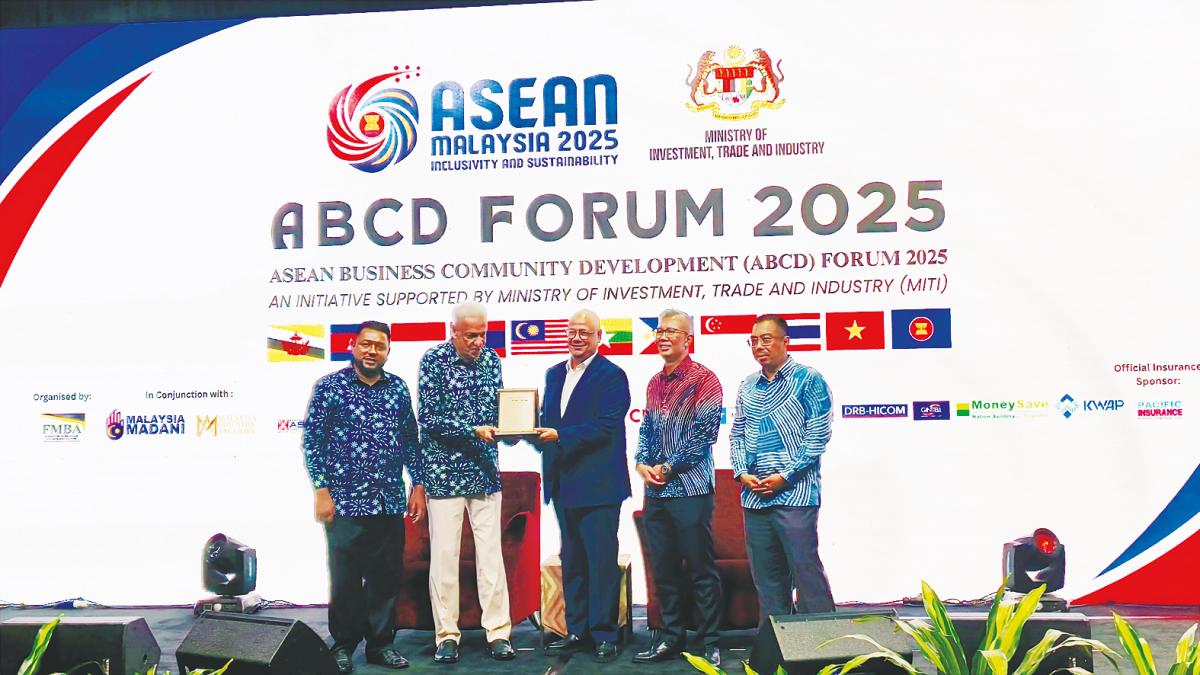KUALA LUMPUR: Companies must brace for a rapidly evolving global economic order where multilateralism is under threat and protectionism is on the rise, warned Investment, Trade and Industry Minister Tengku Datuk Seri Zafrul Abdul Aziz.
Speaking at a fireside chat during the Asean Business Community Development Forum 2025 (ABCD Forum 2025), Tengku Zafrul urged businesses, both Malaysian and regional, to avoid being consumed by the “noise” of geopolitical tensions, such as US-China tariff hikes, and instead focus on becoming more competitive, inclusive and resilient.
“Companies need to start thinking about how to remain productive and competitive. Every country is now challenging the principles of multilateralism ... one protection will always lead to another,” he said, adding that global trade rules under the WTO (World Trade Organization) framework are now being questioned.
He cautioned that the long-term impact of a “new world economic order” could alter how nations structure policies, with implications for business survival and sustainability.
“Is the current growth sustainable, inclusive, equitable and resilient? People are asking these questions and this will shape policy. You must navigate this landscape strategically,” Tengku Zafrul told business leaders at the forum.
He acknowledged that while Malaysia’s 2025 gross domestic product (GDP) growth is still forecast at 4.0%–4.8% despite potential 19% tariffs on semiconductors, the real concern lies in structural risks and political pressures that could drive more countries including Malaysia towards economic insularity.
Tengku Zafrul reaffirmed Malaysia’s efforts to hedge against rising global volatility through trade diversification and strategic diplomacy, including its recent application to join BRICS, the bloc of emerging economies comprising Brazil, Russia, India, China, South Africa, Egypt, Ethiopia, Iran and the United Arab Emirates.
“We’re an open economy. We can’t afford to be insular. We’re exploring new alignments like BRICS to widen our market access and mitigate risks from unilateral actions.”
Tengku Zafrul said that while Malaysia is still assessing the long-term implications of the proposed 100% tariffs by the United States on China-made semiconductors, the Ministry of Investment, Trade and Industry has sought clarification from the US trade representative.
He stressed that the impact on Malaysia is still uncertain and urged stakeholders to focus on long-term value creation rather than short-term shocks. “We can’t react emotionally. Businesses must ask: do we have a real comparative advantage? Are we building resilience into our supply chains?” he posed.
The minister reminded businesses that strong public-private alignment is key to surviving global disruptions. Entrepreneurs must ensure their products and services are viable and export-ready, so any government intervention, such as market facilitation or trade missions, translates into real economic gain.
“Governments can only push if there’s something solid to push. If the product is not strong, then support is theoretical,” he said.
Turning to Asean, Tengku Zafrul highlighted that Malaysia remains a top investment destination, driven by strong investor confidence and an improving ease-of-doing-business ecosystem.
He cited recent data from the Malaysian Investment Development Authority, which showed that foreign direct investments had continued to rise, especially in sectors such as electrical and electronics, green energy and digital economy infrastructure.
“We are not just talking about incentives. Investors are increasingly focused on infrastructure readiness, ESG credentials, and policy clarity. Malaysia ticks these boxes,” he said.
Tengku Zafrul emphasised that Malaysia’s role within Asean is pivotal to regional industrial transformation. The region’s collective GDP, young demographics and growing consumer class make it an attractive supply chain hub amid global decoupling from China.
“Asean must not just be a passive player. We need to create our own narrative, our own value chains, and our own centres of excellence.”
Tengku Zafrul urged companies to reflect on their role in society amid growing inequality and public scrutiny over issues such as CEO pay gaps and social equity. “I’m not saying don’t make money. But try to share it as much as possible. People are demanding fairer models. If they feel left out, they may push governments toward populism or protectionism.”
His comments come at a time when Malaysia is actively crafting its National Industrial Master Plan, investing in advanced sectors such as semiconductors, electric vehicles and digital trade.
Tengku Zafrul said local companies must move beyond depending on government incentives and grants, and instead adopt a mindset of co-creation and innovation. “The government is a facilitator, not a crutch. Our job is to create the enabling environment but industry must lead the way.”









